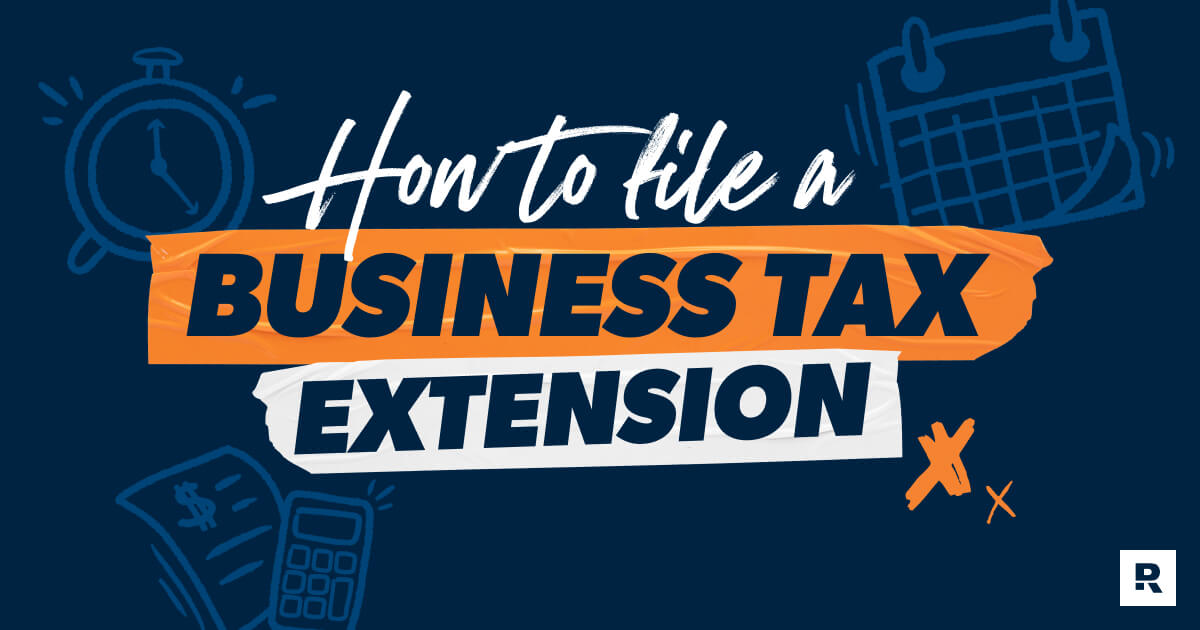There’s a special day that comes once a year that most people absolutely dread. No, it’s not Thanksgiving with weird Uncle Junior. Although, yeah, that day can be brutal. We’re talking about Tax Day. And while both days might make you look for a heavy bag to punch (you’ve got to work out that stress somehow), only one of them can be postponed, giving you a little extra time to prepare.
That’s right, you can file a business tax extension and put off filing your taxes for a few months. Now, if only there was a way to put off the crazy relatives, right?
Let’s dive in!
How to File a Business Tax Extension
First things first: You can request a business tax extension by using Form 4868 or Form 7004. Which one you use depends on the type of business you own.
- Sole proprietor businesses and LLCs with only one member use Form 4868. If you list any business profits as part of your personal income on your Form 1040, you would apply for an extension using this form. The deadline to send the form to the IRS is April 15.
- Partnerships and multi-member LLCs use Form 7004. The deadline to file is April 15.
- Corporations and S corporations also use Form 7004. The deadline for corporations and S corps to file is March 15.
Approval for most corporations is automatic, but you should check the instructions on Form 7004 for details. You can file Form 7004 online through the Modernized e-File (MeF) platform.1
The extension gives you an extra six months to complete and file your business tax return. The IRS typically won’t let you extend it for longer than six months, although they may allow longer extensions for businesses operating in a foreign country.
What Are Some Reasons to File a Business Tax Extension?
Well, business taxes can be complicated. Just getting all of the receipts together can feel like a full-time job, especially if you’re not the most organized person in the world. And sometimes there are circumstances out of your control. But beyond that, there can be some good reasons to file a business tax extension. Here are some of them:
If you’re self-employed, you get more time to fund your retirement plans.
We wouldn’t recommend filing an extension for any old reason, but if you find yourself in that situation, an extension gives you an extra six months to contribute to your retirement accounts. If you’re self-employed and you set up a Simplified Employee Pension IRA (SEP-IRA), you can make deposits to your account up to the tax filing due date—and that includes extensions.2
For example, extending the due date from April 15 to Oct. 15 gives you an extra six months to contribute to your retirement plan. This comes in handy if you’re way behind and didn’t reach your goal of investing 15% for the previous year (but make sure you can stay on track with your investing goals for the current year). And if you’re not saving for retirement, well, get on it! Contact one of our SmartVestor Pros and they’ll get you going.
You get extra time to sort out your deductions.
Sometimes things get complicated, and you may need time to figure out which deductions you can and can’t take on your business taxes. The extra six months lets you work with a tax pro like one of our Endorsed Local Providers (ELPs) to figure out the deductions and credits you’re actually qualified to include. The new tax reform bill, formally known as the Tax Cuts and Jobs Act, changed how small-business tax deductions work by eliminating some miscellaneous expenses like travel or meals with clients. This is where a tax pro can really come in handy. And that brings us to our next reason.
It may help you improve the accuracy of your return.
The good news is that the IRS audited only 0.4% of tax returns last year.3 The bad news is that getting audited sucks. Most of the time, the KGB—uh, we mean the IRS—triggers an audit because something just doesn’t add up. Maybe there’s missing income or a bunch of deductions that just look too good to be true. If you feel like you could use an extra six months to make sure all of your ducks are in a tight row, then an extension is for you. It’s better to take your time and do it right than to get stuck in the audit process.
Can You Get an Extension for Paying Business Taxes?
Okay, just like it’s important to be direct and honest with your in-laws when setting boundaries ahead of that Thanksgiving visit, we need to make something crystal clear: You can’t get an extension for paying your taxes.
Got small business tax questions? RamseyTrusted tax pros are an extension of your business.
One more time for the people in the back: You cannot get an extension for paying your taxes! The deadline extension only applies to when you file your taxes—not when you pay them.
Self-employed people and small businesses pay their taxes throughout the year through quarterly taxes. If it looks like you’re going to owe more than $1,000 in taxes for your businesses, you should pay your taxes quarterly.
If the due date happens to fall on a weekend or a legal holiday, then the payment is due the next business day.4 When you file your return, whether you extend or not, you might get some of it back as a refund.
Find a Tax Pro to Help You With Your Business Taxes
You’re doing such an awesome job running your business. Wouldn’t it be nice to have some help when it comes to your taxes? Whether it’s figuring out just which expenses are deductible or making sure you complete your return on time, our tax ELPs can help you with even the most complex tax situations. And if you need to file a business tax extension, they can help you with that, too!
Find your tax pro today!
Read the full article here
















